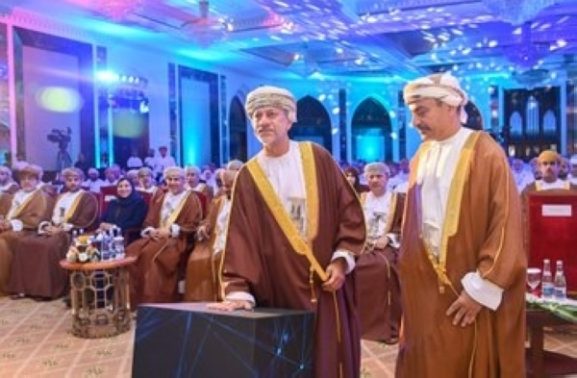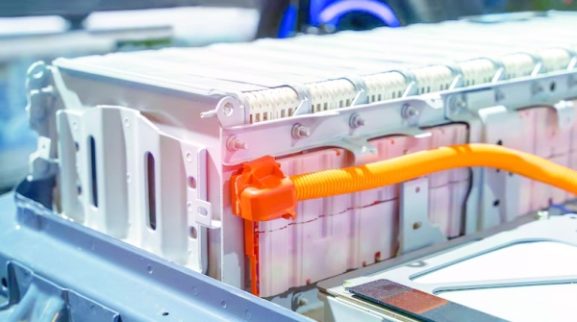رشد بندر دقم: چگونه محمولههای کانتینری، انرژی سبز و مشارکتها میتوانند کسب و کار شما را در عمان رونق دهند
موفقیت آینده بندر دقم به مشارکتهای صنعتی و انرژی سبز بستگی دارد
صلالهرجی ورمولن، مدیرعامل بندر دقم، دیروز در سخنانی در مجمع حمل و نقل خاورمیانه اظهار داشت: موفقیت بلندمدت بندر دقم به ترکیبی از عملیات کارآمد، محمولههای صنعتی «محبوس»، تولید مبتنی بر انرژی سبز و مشارکتهای قوی دولتی-خصوصی وابسته است، نه صرفاً فعالیتهای حمل و نقل دریایی.
ورمولن تأکید کرد که در حالی که کارایی عملیاتی بسیار مهم است، صرفاً داشتن یک مکان و زیرساخت عالی برای تضمین موفقیت یک بندر کافی نیست. او هشدار داد که بنادری که منحصراً بر حمل و نقل دریایی تمرکز دارند، صرف نظر از امکانات باکیفیت خود، ممکن است با کمبود استفاده مواجه شوند. او توضیح داد: «صنایعی مانند فولاد، گاز و شیلات که به اسکله متصل هستند، برای ایجاد چرخه مثبت حجم و سرمایهگذاری ضروری هستند.»
او به نمونههایی از بنادر مدرنشده اشاره کرد که به دلیل فقدان مناطق صنعتی داخلی و حجم بار تضمینشده، موفق به رشد نشدهاند. در مقابل، الدقم از طریق پروژههای بزرگ و ذینفعان مستقر در بندر اطراف و منطقه ویژه اقتصادی، از منابع داخلی بار تولید میکند.
سه اولویت استراتژیک
ورمولن سه اولویت کلیدی را که مرحله بعدی الدقم را شکل میدهند، تشریح کرد:
-
کربنزدایی: بهرهگیری از داراییهای مطلوب بادی و خورشیدی الدقم برای تأمین برق سبز رقابتی و محصولات مرتبط (هیدروژن، آمونیاک، متانول) برای صنایع پاییندستی، بهویژه در فولاد کمکربن. وی خاطرنشان کرد که این بندر حتی قبل از بهرهبرداری کامل از زیرساختهای بالادستی، بهطور فعال ذینفعان را با پروژهها هماهنگ میکند و این نشاندهنده علاقه قابل توجه بازیگران جهانی در ژاپن، برزیل، اروپا و چین است.
-
توسعه جامعهتقویت آموزش، مراقبتهای بهداشتی و خدمات شهری برای جذب استعدادها و ساکنان به استان الوسطی و در عین حال حفاظت از منابع طبیعی منحصر به فرد آن، از جمله زیستگاههای مهم پرندگان ساحلی و مهاجر.
- سلامت و رفاه محیط کاراجرای اقدامات ایمنی و ابتکارات مربوط به کیفیت زندگی برای پشتیبانی از یک شهر صنعتی قابل سکونت.
ورمولن در مورد کارایی لجستیکی خاطرنشان کرد که الدقم با مقامات ملی برای ایجاد یک سیستم جامعه لجستیکی که اپراتورهای بندر، گمرک، مناطق آزاد، انبارها و حملکنندگان را به هم متصل میکند، همکاری میکند. این ابتکار با هدف ارائه دید در لحظه و تسریع فرآیندهای ترخیص کالا، شکاف بین انتظارات مصرفکننده برای ردیابی B2C و محیط محموله B2B را برطرف میکند.
او خاطرنشان کرد که ظرفیت مازاد فعلی در مناطق مختلف خلیج فارس، اقیانوس هند و مدیترانه، پایان مدل سنتی انتظار منفعلانه مقامات بندری برای کسب و کار را نشان میدهد. دستیابی به موفقیت اکنون نیازمند کار تیمی بین مالکان بار، تنظیمکنندگان مقررات، اپراتورها و خطوط کشتیرانی، همراه با سیاستهایی است که عمان را به عنوان یک بازار مبدا و مقصد طبیعی برای محمولههایی که از شمال به جنوب به امارات متحده عربی و فراتر از آن حرکت میکنند، قرار دهد.
عملکرد عملیاتی
ورمولن گزارش داد که عملیات اصلی بندر - تخلیه، بارگیری و تخلیه کشتی - به خوبی انجام میشود. وی اظهار داشت: «گام بعدی، تقویت این پایه عملیاتی با صنایع وابسته است تا از انعطافپذیری حجم در طول چرخههای اقتصادی اطمینان حاصل شود.»
یک کارگاه فنی که قرار است اواخر این هفته برگزار شود، بر استراتژیهای تأمین امنیت محمولههای ضبطشده و مبدا محور برای الدقم و مناطق اطراف آن تمرکز خواهد داشت.
او در پایان گفت: «مشارکت برای پیشرفت ضروری است. وقتی یک برنامه منسجم وجود داشته باشد که صنایع را به انرژی پاک، جوامع پررونق و شفافیت دیجیتال متصل کند، سرمایهگذاری نیز به دنبال آن خواهد آمد.»
تحلیل ویژه از عمانت | بازار عمان را کشف کنید
تمرکز روی یکپارچهسازی عملیات صنعتی با لجستیک کارآمد در بندر دقم، فرصتهای قابل توجهی برای مشاغل در عمان، به ویژه در ... انرژی سبز و بخشهای تولیدیسرمایهگذاران هوشمند باید موارد زیر را در نظر بگیرند: مشارکتهای استراتژیک توسط مدیرعامل رجی ورمولن، به عنوان همکاری با صنایع محلی و تعهد به ... مورد تأکید قرار گرفت. شیوههای پایدار برای رشد بلندمدت در این چشمانداز بازار در حال تحول بسیار مهم خواهد بود. عدم سازگاری میتواند خطراتی را ایجاد کند، بهویژه برای کسبوکارهایی که صرفاً به ... متکی هستند. حمل و نقلکه بر نیاز به یک مدل عملیاتی متنوع مبتنی بر مناطق اقتصادی عمان تأکید دارد.



